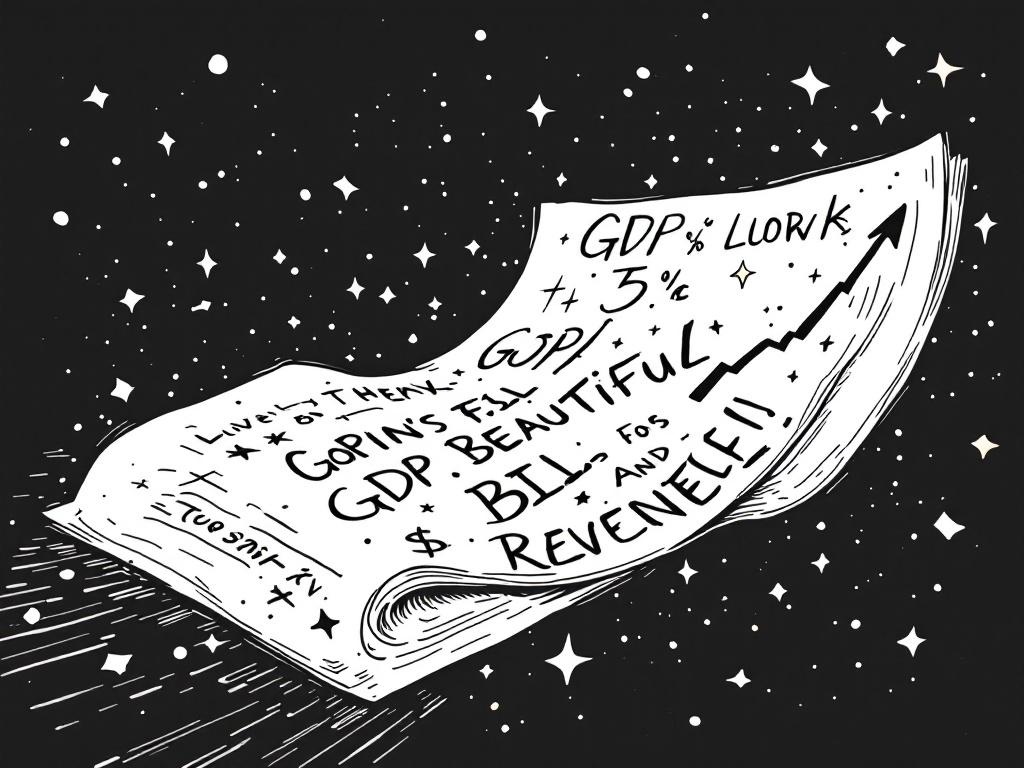Senate GOP's 'Big Beautiful Bill' Promises 1.1% GDP Growth Amidst $4.7 Trillion Revenue Drop

Washington, D.C., Wednesday, 25 June 2025.
The Senate GOP’s tax plan offers a 1.1% GDP boost but slashes federal revenues by $4.7 trillion over ten years, altering future corporate tax strategies and impacting economic policies.
Overview of the Proposed Tax Plan
The Senate GOP’s ‘Big Beautiful Bill’ introduces pivotal shifts in the tax framework, aiming to amend the landscape set forth by the 2017 Tax Cuts and Jobs Act (TCJA). Enacted on June 16, 2025, the bill aspires to make current tax rate adjustments permanent, thereby shielding 62% of taxpayers from impending tax hikes originally slated for the TCJA expiration [1]. These measures also extend to enhancing the standard deduction and maintaining a cap on certain itemized deductions, including state and local taxes (SALT) [1].
Economic Impact and Revenue Projections
According to a preliminary analysis dated June 24, 2025, the bill’s major tax cuts are projected to bolster GDP by 1.1% over a decade, reflecting potential economic revitalization [1]. However, this economic stimulus is coupled with a significant revenue shortfall, expected to reach $4.7 trillion by 2034. On a dynamic basis, recognizing the economic growth spurred by these cuts, the projected revenue shortfall decreases to $3.8 trillion, illustrating that economic expansion would account for approximately 19% of the tax cuts [1].
Debate and Opposition
The proposal has engendered vigorous debate, particularly from Democratic lawmakers who express concern over the fiscal implications and equity of the tax cuts. Senator Jeff Merkley (D-Oregon) notably critiqued the plan as a ‘Big Beautiful Betrayal,’ arguing that while it benefits billionaires, it negatively impacts families [2]. Furthermore, Democratic efforts aim to scrutinize numerous GOP tax provisions, illuminating partisan divides as deliberations continue [3].
Future Implications for Tax Legislation
Moving forward, the ‘Big Beautiful Bill’ promises substantial effects on federal fiscal policy and the economy. As negotiations unfold, the Senate Finance Committee’s reconciliation efforts remain central to shaping the legislative outcome, with long-term impacts anticipated on tax strategy and economic policy [1][4]. The bill’s promotion of investment incentives could stimulate corporate activity but poses serious questions regarding fiscal sustainability over the next decade [4].